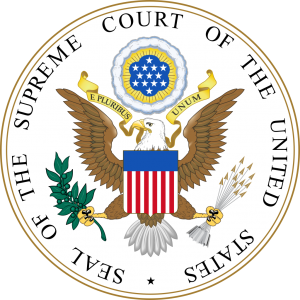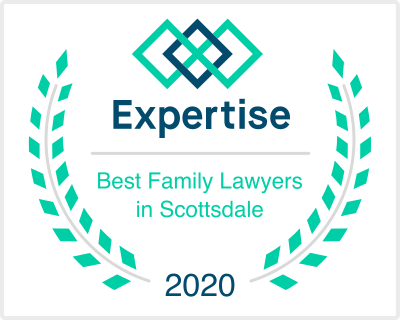Common Questions
What should I do if I recently lost a loved one?
Please see the attached checklist for the loss of a family member. Not all items may apply in your situation, but the list will help you get organized. See Survivor Check List
If I have a last will & testament, does my family have to put my estate through probate?
If a will is all that you have and if your assets total $75,000 or more, Arizona law requires that your family put your estate through probate, which is a time-consuming and costly process.
What is probate anyway?
Probate is a legal proceeding required when someone passes away with no estate plan or with a will only (no trust) and assets over $75,000. The process is lengthy and expensive, and can be avoided with simple estate planning.
How large can my estate be before my heirs are subject to estate tax?
In 2022, your estate is tax exempt up to $12.06 million. Some states impose an estate tax, however Arizona does not have one at the present time. IRS information on the changes to estate taxation can be found at https://www.irs.gov/newsroom/irs-provides-tax-inflation-adjustments-for-tax-year-2022.
If my son or daughter is over 18 years old and has a medical emergency where they become incapacitated, can I receive medical information about them?
The answer depends on the circumstances. Many health care providers are reluctant to share information without a waiver. The US Department of Health & Human Services website provides useful information on the Health Information Portability and Accountability Act (“HIPAA”). They can protect themselves from such a situation through a simple medical power of attorney.
What happens if I don't have a will?
Everyone has an estate plan. If you have not completed an estate plan, the government fills in estate planning provisions for you. The Arizona statute can be found at Arizona Revised Statute Chapter 14 section 2101 et seq. https://www.azleg.gov/viewdocument/?docName=https://www.azleg.gov/ars/14/02102.htm
What happens to minor children if their parents are in an accident and are incapable of decision-making?
If the parents have not designated guardians, the children will be taken into custody and a court will appoint a guardian based on the court’s opinion of what is in the children’s best interest. If the parents have appointed guardians, the children go to the appointed guardians and absent a challenge, can avoid the judicial procedure.
Why create a trust?
If you have more than $75,000 in assets and/or want a say in when and how your assets are distributed to loved ones, a trust is likely advisable in your situation. (Lawyer disclaimer here – everyone’s situation is different, so I would recommend talking to an estate planning attorney to address your particular situation.) That said, in general, trusts allow you to keep your assets and distribution private and allows distribution to be done on your terms. This is a particularly good idea if you have children, since distribution would otherwise go to kids at the age of 18. Administration of the trust is very fast (as opposed to 1-2 years for a probate action), is much less expensive than probate, and can protect special needs beneficiaries and other beneficiaries from creditors, spending spouses and bad judgment. You can achieve all of these benefits while maintaining complete control over your assets. Overall, creating a trust is a smart thing to do, and I personally have 2 and manage another.
What is the difference between a revocable and irrevocable trust?
A revocable trust is a trust the trust-creator (also called a grantor) can change (as long as they are mentally competent). These trusts don’t require a separate tax return to be filed during your lifetime, and simply operate under your social security number for tax purposes until you pass away. At that time, they can no longer be changed (unless allowed in the trust terms) and they get a tax ID number of their own. An irrevocable trust is a trust you (the grantor) would create to essentially hold assets for a beneficiary, but the terms cannot be modified or amended, and the trust would have its own tax ID number and would be required to file its own tax returns. Essentially, any assets you put in that trust would no longer be under your control, but would be under the control of a trustee for the benefit of the beneficiary.
What is a revocable living trust?
I like to compare a revocable living trust to a bucket that you create to hold your stuff – subject to instructions if something happens to you. While you are living and able, you get to decide what happens to your stuff (you get to hold the bucket), and you can change the instructions when you want. An estate planning attorney drafts the language to make sure it complies with law, and addresses common legal issues. You get to designate who will handle your stuff when you die or when you are incompetent (when the bucket gets passed to another trustee who has to carry out your instructions) and you get to decide who your stuff goes to, how and when. It’s a great tool to managing your assets.
Why do I need a medical power of attorney?
A medical power of attorney allows another (or even several others) to make medical decisions for you if you cannot make them yourself. It allows the person you designate to talk to your doctor, and obtain medical information about you to make informed decisions. Several powerful recent examples for the need for this document are the mass shootings in a Florida night club and a Las Vegas concert venue. Parents concerned because their adult children were missing were unable to obtain information from the hospitals about whether their child was in the hospital without this document.
What is a durable power of attorney?
A durable power of attorney is a power of attorney that allows someone to make financial decisions for you. You can decide whether you want this document to take effect immediately or whether you want it to take effect only if you are unable to handle your finances yourself. This document only applies while you are living, and is no longer effective once you pass away. It generally grants very broad authority to handle your financial affairs.
When should I get an estate plan?
Every adult should have basic documents (even when they don’t have much in the way of assets). Basic documents protect you if something happens to you by insuring you have designated decision-makers in case of emergency. Also, creating a basic plan means you can designate who you would want to get your assets. If you do not create your own estate plan, the government has enacted a statute which determines who gets your assets upon your death. Many people might not want assets to go to the people the statute designates when there’s no plan.
Do I need an estate planning attorney?
Like anything else that requires professional expertise, you don’t know what you don’t know. Just like working on a car (for me) or performing a root canal, these are not things I would trust to an amateur. After all, you’re talking about ALL of your assets AND ALL of the people you hold most dear. Wouldn’t this be the time you would want things to be done right? An estate planning attorney will give you different options and will help you think about scenarios you might never consider. And, you cannot afford to get it wrong. Once you are gone, it cannot be fixed. Avoid costly mistakes and talk to a professional.
Thank You


Thanks for your interest. I know you have a lot of options when it comes to legal planning. Desmond Law, PLLC has been the trusted partner of the Scottsdale area residents. I look forward to meeting with you. Schedule today!
Free Report
No Time For Mistakes
Learn The Six Major Mistakes Families Make When Choosing An Estate Planning Attorney ... And How To Make A Loving Choice For Your Family
Let me help you protect the people and things you love to make sure they stay out of court and out of conflict.
Enter your name and email address so we can send it to you. We love your privacy – we will never spam you.













Menu
Contact Us
10565 N 114th Street
Suite 113
Scottsdale, AZ 85259
(480) 848-9550





Copyright © 2024 Desmond Law, PLLC All Rights Reserved | Privacy Policy | Cookie Policy
DISCLAIMER: No information you obtain from this website or its content is legal advice, nor is it intended to be. You should consult an attorney for individualized advice regarding your own situation. No attorney-client relationship is intended or formed by your viewing this website or downloading and using the content, forms, tips or information kits found on this website. No attorney-client relationship is intended or formed without a fully-executed, written agreement to enter into such a relationship. Client testimonials or endorsements do not constitute a guarantee, warranty, or prediction regarding the outcome of your legal matter.



